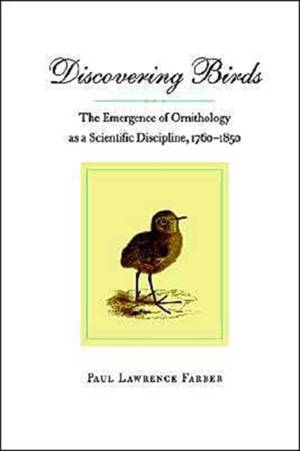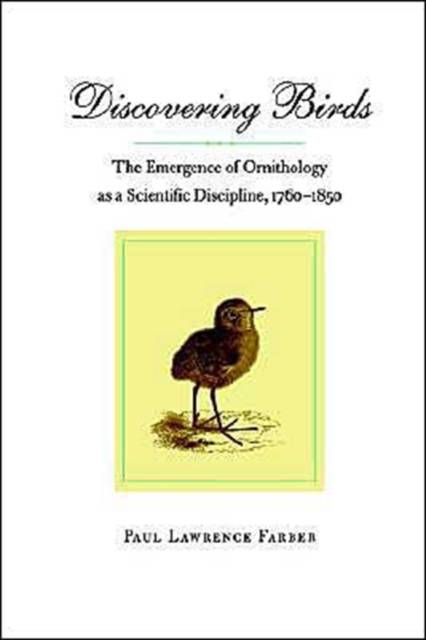
- Afhalen na 1 uur in een winkel met voorraad
- Gratis thuislevering in België vanaf € 30
- Ruim aanbod met 7 miljoen producten
- Afhalen na 1 uur in een winkel met voorraad
- Gratis thuislevering in België vanaf € 30
- Ruim aanbod met 7 miljoen producten
Discovering Birds
The Emergence of Ornithology as a Scientific Discipline, 1760-1850
Paul Lawrence FarberOmschrijving
In this penetrating case study of the history of ornithology, Farber demonstrates interesting continuities: as natural history evolved into individual sciences (botany, geology, and zoology) and specialties (entomology and ichthyology), the study of birds emerged as a distinct scientific discipline that remained observational and taxonomic.
In Discovering Birds, Paul Lawrence Farber rejects the view that eighteenth-century natural history disappeared with the rise of nineteenth-century biology. In this penetrating case study of the history of ornithology, Farber demonstrates interesting continuities: as natural history evolved into individual sciences (botany, geology, and zoology) and specialties (entomology and ichthyology), the study of birds emerged as a distinct scientific discipline that remained observational and taxonomic. Ornithologists continued to see one of their primary tasks as classification, and they found no need to alter their approach.
Their efforts were greatly aided at the end of the eighteenth century as colonization and exploration brought new dataa plethora of exotic and previously unknown birds. By the mid-nineteenth century, ornithology had become a scientific discipline with international experts, a large empirical base, and a rigorous methodology of watching and cataloging.
Specificaties
Betrokkenen
- Auteur(s):
- Uitgeverij:
Inhoud
- Aantal bladzijden:
- 224
- Taal:
- Engels
Eigenschappen
- Productcode (EAN):
- 9780801855375
- Verschijningsdatum:
- 4/12/1996
- Uitvoering:
- Paperback
- Formaat:
- Trade paperback (VS)
- Afmetingen:
- 151 mm x 225 mm
- Gewicht:
- 371 g

Alleen bij Standaard Boekhandel
Beoordelingen
We publiceren alleen reviews die voldoen aan de voorwaarden voor reviews. Bekijk onze voorwaarden voor reviews.











